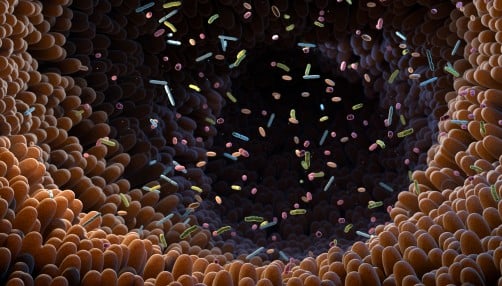URGENT UPDATE: A groundbreaking study from UCLA Health reveals that a child’s gut microbiome may significantly influence their future emotional health, particularly their risk of developing depression and anxiety. This vital research, published in the journal Nature Communications, confirms that the bacteria present in infants’ guts are intricately linked to brain connectivity and emotional health outcomes as they grow.
The study highlights that young children with a higher presence of gut bacteria from the Clostridiales order and Lachnospiraceae family face an increased risk of internalizing symptoms, which encompass depression and anxiety, by middle childhood. This alarming connection unfolds through changes in emotional brain networks, suggesting that early gut health could play a crucial role in shaping mental health during critical developmental years.
Conducted on data from the Growing Up in Singapore Towards Healthy Outcomes (GUSTO) study, researchers analyzed health data from children in Singapore, including stool samples at age 2 years, brain scans at age 6 years, and caregiver surveys at age 7.5 years. The study involved 55 participants and focused on statistical correlations between gut microbiome compositions and observed emotional symptoms.
Dr. Bridget Callaghan, the study’s senior author and an associate professor of psychology at UCLA, emphasizes the importance of these findings. “By linking early-life microbiome patterns with brain connectivity and later symptoms of anxiety and depression, our study provides early evidence that gut microbes could help shape mental health during the critical school-age years,” she stated.
The implications of this research are profound. If left unaddressed, symptoms of anxiety and depression in childhood can lead to mental health challenges persisting into adolescence and adulthood. Callaghan points out that understanding which specific gut microbes are responsible for these connections could pave the way for interventions, potentially through dietary changes or probiotics.
This study marks a significant shift in research focus. Previous investigations into the gut-brain axis primarily concentrated on infants and toddlers, often overlooking school-aged children. With this new perspective, researchers aim to explore how the gut microbiome’s composition can affect mental health outcomes at a stage when issues like depression and anxiety begin to emerge.
The collaborative effort also involved leading institutions such as the Agency for Science, Technology and Research’s (A*STAR) Institute for Human Development and Potential and the National University of Singapore Yong Loo Lin School of Medicine, underscoring the global significance of these findings.
Looking ahead, researchers plan to conduct further experimental studies to determine whether these associations are indeed causal. “We need to figure out what species within these larger groups are driving the findings,” Callaghan added. “Once we have that information, there are relatively straightforward ways to change the microbiome that we could use to address issues.”
As this urgent research unfolds, the potential for gut health management to play a transformative role in childhood mental health is a developing frontier that could change the landscape of pediatric healthcare.
Stay tuned for more updates as scientists continue to probe the intricate links between gut bacteria and emotional well-being. This is a story that could redefine our understanding of mental health from the very beginning of life.







